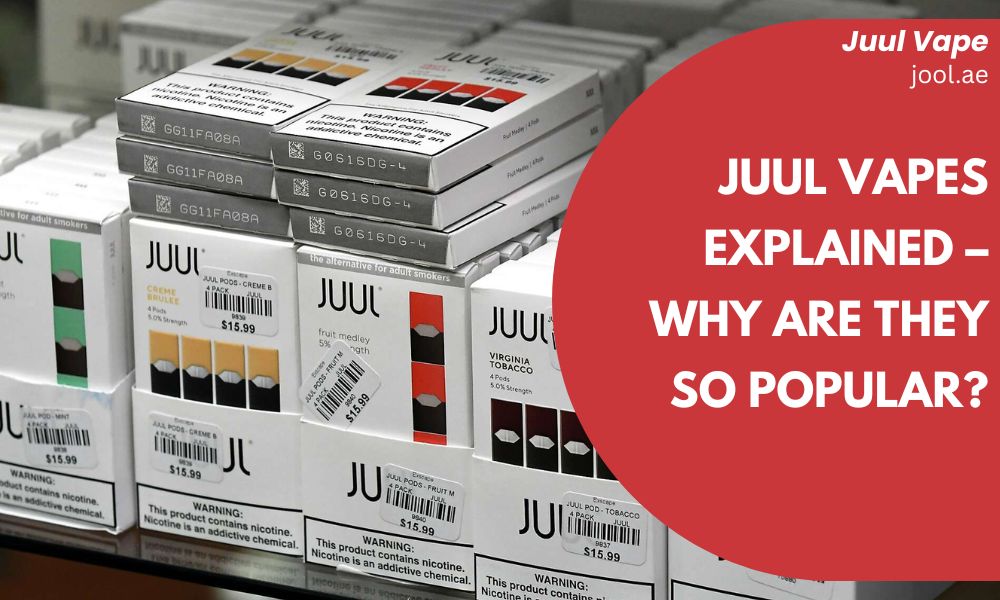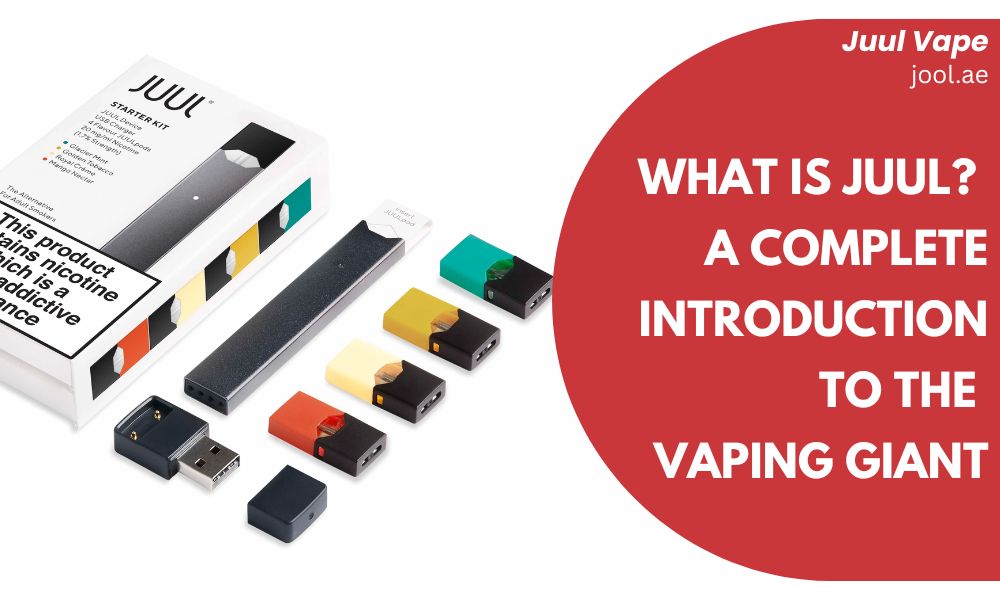Instant Delivery | Free Shipping on 200AED+
Instant Delivery | Free Shipping on 200AED+
Author : Abdel
Date : Thursday, 3rd April 2025
You’ve likely encountered JUUL vapes or know someone who uses them, as they’ve become one of the most dominant forces in modern vaping culture. Their meteoric rise to popularity isn’t accidental – it’s the result of innovative design, powerful marketing, and a unique approach to nicotine delivery that’s changed how people view e-cigarettes.
When JUUL burst onto the e-cigarette market, it quickly altered the vaping industry with extraordinary growth and market dominance. No other brand has achieved such rapid success, with JUUL’s market share skyrocketing from 24% to 75% between 2017 and 2018.
The company’s influence created significant cultural shifts, particularly among young adults and teens. The product became so ingrained in youth culture that the term “JUULing” emerged as slang for using the device.
By 2017, they became the top-selling e-cigarette brand in U.S. convenience stores, with sales increasing over 600%. Their sleek design and discreet nature changed how people viewed vaping, though this popularity came with concerns.
JUUL’s rise in the vaping industry stems from its innovative design. The USB flash drive-like appearance offers compact convenience, measuring just 87.2 mm in length and 15.1 mm in width, weighing only 14 grams with a full pod.
The device features a draw-activated mechanism, eliminating the need for buttons. The aluminum body houses a 200 mAh battery rechargeable via a magnetic USB dock.
Inside, JUUL’s temperature control system ensures consistent vapor production. The cotton wick enhances performance, and the nicotine salt pods produce minimal vapor, making the device efficient and discreet. The latest pods maintain voltage at 4.3 W for reliable performance.
JUUL’s marketing transformed how vaping products reach consumers through aggressive social media campaigns and influencer partnerships.
They gained popularity on Instagram with strategic content featuring young models and lifestyle imagery.
JUUL's brand ambassadors promoted their products without always disclosing sponsorships. Social engagement rose from hundreds of tweets in 2015 to over 30,000 by 2017.
They also sponsored events like the Sundance Film Festival’s “Music in Film Summit” to create immersive brand experiences.
On social media, JUUL content used sweet flavors and trendy themes, blending brand posts with user content for greater visibility.
JUUL’s use of nicotine salts leads to smoother vapor and better nicotine absorption. One JUULpod contains either 59 mg/ml or 35 mg/ml of nicotine—equivalent to a pack of cigarettes.
JUUL generates aerosol with nicotine levels comparable to traditional cigarettes, but often lower. Clinical studies show JUUL’s peak nicotine is about half to three-quarters of cigarette levels, making it more effective than nicotine gum with a safer profile.
JUUL’s rise has raised public health concerns. Between 2017 and 2018, e-cigarette use among high school students rose from 11.7% to 20.8%.
Most users start before age 18, with 63% unaware JUUL contains nicotine. Young users are four times more likely to transition to traditional cigarettes within 18 months.
Peer pressure influences nearly half of first-time users, and 29% say they were attracted by flavored pods. JUUL’s sleek look and perceived safety helped it rapidly grow market share, prompting regulatory scrutiny.
JUUL’s flavor lineup played a major role in its adoption. Starting with basic flavors, JUUL expanded to include popular ones like mango and cucumber, registering over 50 with the FDA.
29% of young users cite flavor as the main reason for choosing JUUL. Due to regulations, only tobacco and menthol are now sold in the U.S., though other countries may have more options. The Juul2 device features six new blends combining fruit, tobacco, and menthol flavors.
While officially targeting adults, JUUL’s dessert-themed marketing and social presence drew criticism for appealing to younger audiences.
JUUL’s popularity comes with health concerns. High nicotine levels in pods can cause addiction and increase risks of heart or lung issues.
Side effects include coughing, dry throat, headaches, and dizziness. JUUL must display warnings about cancer risks and reproductive harm. Although safer than traditional smoking, long-term effects remain uncertain.
Those with pre-existing heart or respiratory conditions may be affected by exposure to fine particles and toxins in JUUL vapor.
JUUL’s success also stems from social influence. Nearly half of users try it because their friends vape. Social platforms helped normalize its use.
| Factor | Impact | Result |
|---|---|---|
| Social Media | Viral content sharing | Normalized usage |
| Peer Groups | Social pressure | Increased adoption |
| Design Appeal | Sleek and discreet | Enhanced popularity |
JUUL’s youthful design and flavor variety made it a cultural icon. Influencers and peer interaction amplified its presence in social settings.
Yes, but it’s tricky and may affect compatibility. Consider using dedicated refillable pod systems.
Typically 8–12 hours with normal use or about 200 puffs per charge.
Water can cause malfunction and battery failure. Dry it thoroughly, though it may not work again properly.
Yes, options like ZiiP and Nimbus work with JUUL and offer various flavors and strengths.
Check packaging, batch codes, logos, and pod colors. Avoid shrink-wrapped packages and buy from trusted sources.
JUUL’s popularity is driven by its design, nicotine delivery, and marketing. While convenient and flavorful, it comes with health risks and high addiction potential. As awareness and regulations grow, it’s crucial to make informed choices about JUUL use based on both social influence and medical impact.

JUUL Vapes Explained – Why Are They So Popular?
You’ve likely encountered JUUL vapes or know
Read More ⇢
What Is Juul? A Complete Introduction to the Vaping Giant
Juul Labs altered the vaping industry after i
Read More ⇢